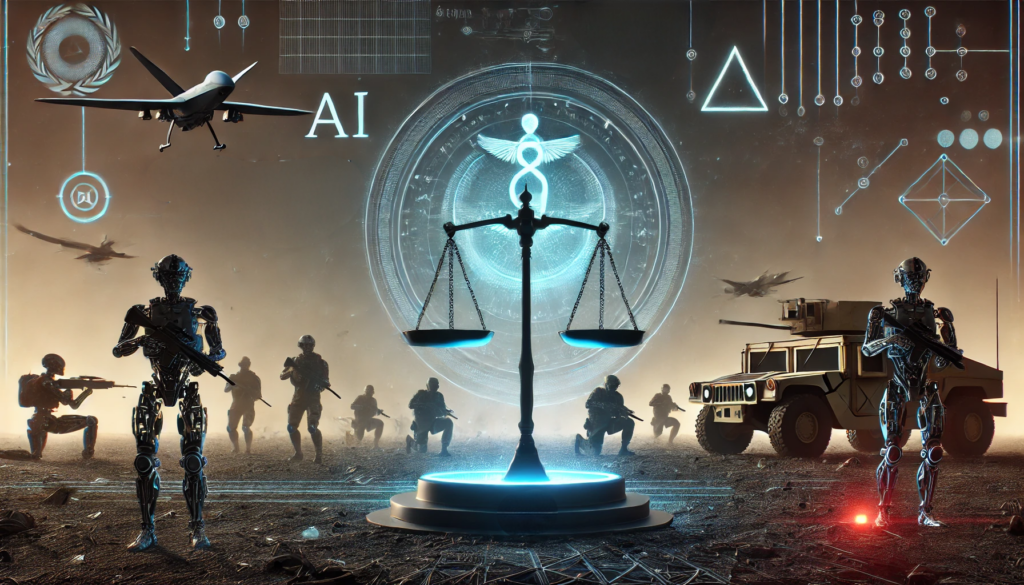Introduction to AI in Military Applications
The Chair AI Regulation shares a recently published article by its research fellow, Dr. Theodoros Karathanasis, focusing on the critical intersection of Artificial Intelligence (AI) in military applications and International Humanitarian Law (IHL).
The Challenges of AI-Enabled LAWS
The article, titled “AI-Enabled LAWS: From the Target Recognition Principle to Adaptive Legal Reviews”, addresses the emergent challenges posed by the development and implementation of military AI, particularly concerning the protection of civilians under IHL. It highlights the inadequacy of current testing methods to address the risks associated with AI-enabled Lethal Autonomous Weapons Systems (AI-LAWS), which can undermine the reliability and predictability of these systems.
The Principle of Distinction
The principle of distinction under the Law of Armed Conflict (LoAC), requiring military attacks to be directed only at military objectives, faces new complexities with AI-LAWS due to their “black box” decision-making, potential for unexpected behaviors, and degradation of accuracy over time. It expresses concerns about the quality of training data for AI-LAWS in distinguishing military from civilian targets.
Limitations of Existing Regulatory Frameworks
Recognising the limitations of existing regulatory frameworks and the UN Convention on Certain Conventional Weapons (CCW) framework, the article advocates for the development of adaptive legal reviews that can be utilized throughout the entire lifecycle of AI-LAWS to assess the risk of target misclassification. These reviews should consider the system’s ability to comply with the principles of distinction and proportionality, its reliability, understandability, and predictability.
Conclusion
In conclusion, the development and implementation of AI-enabled LAWS pose significant challenges to International Humanitarian Law, particularly with regards to the protection of civilians. The article highlights the need for adaptive legal reviews to ensure that AI-LAWS comply with the principles of distinction and proportionality. It is essential to address these challenges to prevent unintended consequences and ensure that the use of AI in military applications is aligned with humanitarian law.
FAQs
Q: What is the main focus of the article "AI-Enabled LAWS: From the Target Recognition Principle to Adaptive Legal Reviews"?
A: The article focuses on the challenges posed by the development and implementation of military AI, particularly concerning the protection of civilians under International Humanitarian Law.
Q: What is the principle of distinction under the Law of Armed Conflict?
A: The principle of distinction requires military attacks to be directed only at military objectives, distinguishing them from civilian targets.
Q: What is the limitation of existing regulatory frameworks in addressing AI-enabled LAWS?
A: Existing regulatory frameworks are inadequate in addressing the risks associated with AI-enabled LAWS, and there is a need for adaptive legal reviews to assess the risk of target misclassification.
Q: What is the purpose of adaptive legal reviews in AI-LAWS?
A: The purpose of adaptive legal reviews is to assess the risk of target misclassification and ensure that AI-LAWS comply with the principles of distinction and proportionality, reliability, understandability, and predictability.











